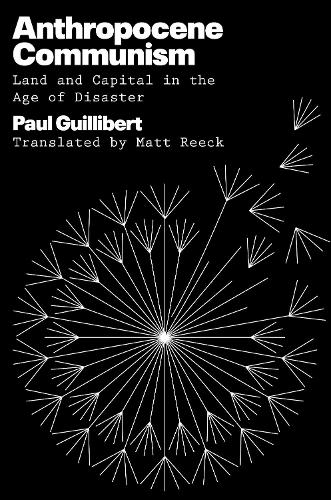
Anthropocene Communism: Land and Capital in the Age of Disaster
Publishing Details
Anthropocene Communism: Land and Capital in the Age of Disaster
By (Author) Paul Guillibert
Translated by Matt Reeck
Verso Books
Verso Books
6th January 2026
United Kingdom
Classifications
General
Non Fiction
Far-left political ideologies and movements
Environmentalist thought and ideology
Physical Properties
208
Width 140mm, Height 210mm
300g
Description
In the age of climate change, is the communist hypothesis still relevant Only a renewed communism, a communism for life - or a biocommunism - will enable us to move beyond the ecological crisis of late capitalism. Based on an original reading of founding texts of Marxism, the author launches a critique of the ontological turn in ecology. Against Bruno Latour or Donna Haraway, he develops a philosophy for green Marxism based on the centrality of land ownership. The history of societies and the history of nature are intertwined precisely because they have singular trajectories. In a new reading of Karl Marx's exchanges with the populist terrorists in Russia, the cultural studies of Raymond Williams and the Marxism of Jos Carlos Maritegui's and Ernst Bloch's attachment to the land, the author develops a philosophical naturalism in which human belonging to the Earth is transformed by the ways in which societies appropriate nature. A political strategy is derived from this new philosophy of history: ecological dual power, ecological soviets, is the communist strategy for getting out of the Anthropocene. Communism must become environmentalism, and political ecology can only become truly revolutionary if it becomes communist.
Reviews
Paul Guillibert's book has a clear ambition and clearly states his approach: to re-found communist cosmology on a naturalistic basis which, in his view, must take account of nature's own agentivity. The book offers convincing arguments in favour of a reconciliation between the communist goal of emancipation from labour and the ecologist's attachment to the earth. This reconciliation is achieved through a close reading of Marx, particularly his late writings. -- Tristan Boursier * Lectures *
This is a highly interesting book, totally in tune with the challenges of its time. -- Philippe Caumires * En attendant Nadeau *
This book is a rich and informed contribution to the most recent ecological debates, distinguished by its focus on the conditions for a future ecological communism, rather than on the diagnosis of the multiple destructions of nature by capitalism. The author convincingly suggests that Marx's historical materialism does not avoid the cosmological question in favour of the class struggle, but rather resolves the former in order to lay a better foundation for the latter. -- Bertrand Vaillant * La vie des ides *
Anthropocene Communism is a tour de force. At a moment of epochal crisis, Guillibert reimagines communism as a vibrant cosmopolitics for living beings entangled in capitalism's web of life. Urgent, insightful, and profoundly hopeful, Guillibert lights a revolutionary path forward. -- Jason W. Moore, author, Capitalism in the Web of Life
Author Bio
Paul Guillibert is researcher at the National Center for Scientific Research and teaches philosophy in Paris 1 Panthon-Sorbonne University (France). A political activist, in his work he elaborates the philosophy of Marxist political ecology by confronting classical Marxist texts with contemporary ecological humanities. He has also published Exploitez les vivants. Une cologie politique du travail (2023).
